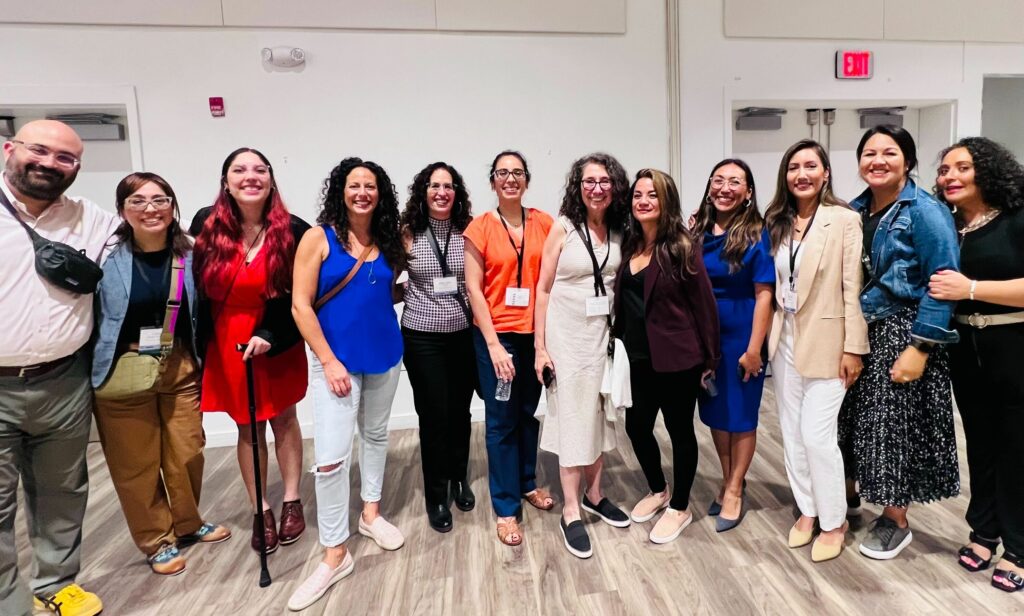ASA 2023 Reflections from Dr. Celia Lacayo
I have been attending the American Sociology Association (ASA) Annual Meeting for over a decade and have had the privilege to have witnessed major and critical changes in the discipline.

I have been attending the American Sociology Association (ASA) Annual Meeting for over a decade and have had the privilege to have witnessed major and critical changes in the discipline. One of them – and one of the most exciting – is the increase in Latinx scholarship and Latinx scholars. It is wonderful to see that the first time I attended the Latinx section reception, it was about 30 people, and now the membership has grown to over 400.
The sheer numbers tell only one part of the story. The more compelling part of the story is how the paradigms in Sociology, particularly in the immigration literature, have shifted to truly reflect the realities of Latinx communities.
When I started my Ph.D. program, most of the work about Latinx communities was couched in paradigms that did not adequately reflect their experiences. Many scholars who were deemed experts in Latinx communities had spent no to little time there and often reinforced stereotypes that only fueled Latinos’ position in the US racial hierarchy. Senior and a larger wave of junior scholars in the last 20 years have produced literature demonstrating how Latinx communities are and continue to be racialized. And that Latinx discrimination has unique characteristics, including immigration status, local context, history, and skin color.
What is also striking and impressive is that many of these scholars have some connection to UCLA, to name a few UCLA is home to scholars like Leisy Abrego and Cecilia Menjivar, experts in Latinx undocumented communities, the Central American experience, and legal violence. UCLA is also home to the incomparable femtor Vilma Ortiz who has trained a large cohort of Latinas over many years, all of whom have contributed to knowledge production using cutting-edge research on topics like Latina reproductive rights, Latinx racialization, Black and Brown relations, undocumented immigrants lived experience, Latinx in education to name a few.
This presence is not only felt at ASA, but the volume of publications has permeated syllabi around the world.
I had the honor to lead two panels. One entitled Latinx Communities and Public Sociology, where five presenters reflected some of the most relevant research that reflects the Latino community’s theoretically robust and empirically rich heterogeneity. The second panel was a book forum for Sylvia Zamora’s book Racial Baggage: Mexican Immigrants and Race Across the Border. This book won the ASA Latina/o Section Award.
When I first began to attend ASA, I searched for these panels and realized we had to create them. I am happy to see the large increase in panels and research. We certainly have a long way to go. I am proud of all these scholars across the country who had the courage to brave a discipline that was not always welcoming. I am also proud of the role the scholars from UCLA have played to advance the field as a whole and, equally important, advance the research on Latinx communities. My students say they see themselves in these stories and are profoundly inspired by these publications. As a professor, I always tell my students to look at the syllabus and that when I sat in the same seats they sit in now, none of these publications were available 20 years ago. Thus, I can attest to how this knowledge production is crucial to challenge racial inequities and improve the lives of Latinx folk.








